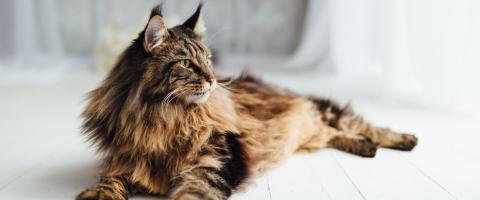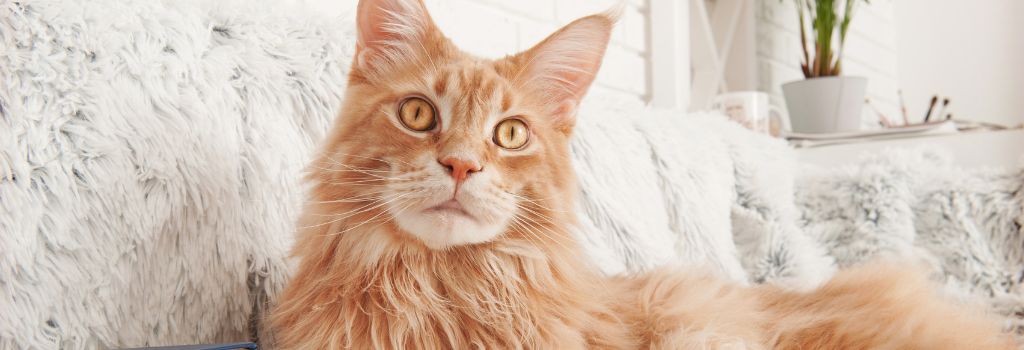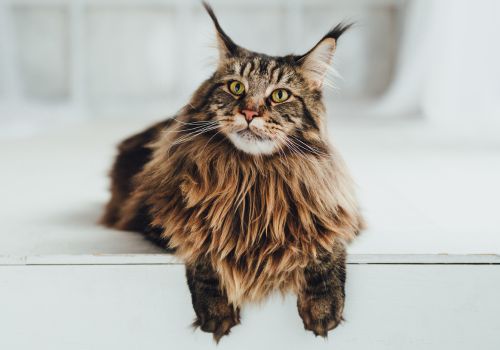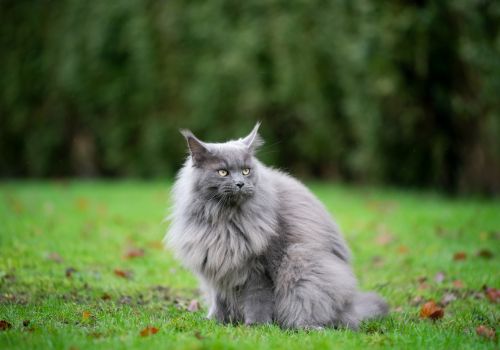
Diving into the world of one of the most beloved cat breeds around—the Maine Coon. If you have a Maine Coon in your life, you already know that you’ve hit the feline jackpot. They're famous for their gentle souls and for being more like dogs than cats in some ways. Yes, they're the cool kids of the cat world!
Why We Love Maine Coons
Maine Coons come with a bundle of traits that make them incredibly easy to fall head over heels for. Let's count the ways: They're large and athletic but gentle as lambs. Highly intelligent, these smarty-pants can learn tricks and commands in a snap. And let's not forget their laid-back nature—they're the chill cats that get along with other cat-friendly dogs and kids. Oh, and that adorable purring when they're content? It's music to any pet parent's ears!
The Quirks That Make Them Unique
Now, while Maine Coons are nearly purrfect (see what I did there?), they come with their own set of quirks. For starters, their luscious, thick double coats don't maintain themselves. You'll need to get into the groove of regular grooming to avoid dreaded mats. And if you enjoy peace and quiet, you might have to adjust your expectations—Maine Coons love to "chat." Whether it's breakfast time or they're commenting on your choice of TV shows, these cats have something to say about it!
Is It All Worth It? A Resounding 'Yes'!
Oh, you bet it is! Maine Coons are the epitome of personality wrapped up in a bundle of fur. They may have a luxurious coat that demands your attention and a vocal streak that fills your home with their "opinions," but every little detail is just an extension of their abundant character. It’s easy to see why they've earned their reputation as gentle giants.
A Breed Built for the Great Outdoors—Sort of
These felines are well-equipped to face the harsh Maine winters thanks to their thick, weather-resistant double coats. They’re like the all-terrain vehicles of the cat world! But don't let that fool you into thinking they're aloof or independent. Maine Coons love their human families. They might not be velcro-cats, but they’re always up for following you from room to room, offering a helpful paw, or even playing a game of fetch. Some are even fascinated by water and might enjoy an occasional supervised dip!

There you have it—the Maine Coon in all its splendor. Gentle yet spirited, these cats are a bundle of contradictions that make them irresistibly unique. From their helpful "comments" to their snuggly moments, owning a Maine Coon is a journey filled with delightful surprises. So give your fur baby an extra snuggle today and treasure all the joy they bring into your life!
Genetic Predispositions for Maine Coons
The Silent but Serious: Cardiomyopathy
Let's start with cardiomyopathy, a medical jargon that essentially means heart muscle disease. Cats can inherit this condition, or it could be a side effect of other diseases like an overactive thyroid. One of its most common forms is hypertrophic cardiomyopathy (HCM), characterized by a thickening of the heart muscle. Unfortunately, our kitties are experts at hiding their ailments, which makes early detection challenging. But keep an eye out for quick breaths, a sudden bout of laziness, or a decline in their appetite. These could be signs your cat has been silently suffering and needs urgent medical attention. Regular vet visits, like twice a year, can help catch heart murmurs—a common symptom of cardiomyopathy—early on.
Blood Clots: Feline Aortic Thromboembolisms
Blood clots are another scary consequence of heart disease. Known as FATE (feline aortic thromboembolism), these clots can block blood flow to your cat's hind legs, causing sudden paralysis and extreme pain. This is an emergency situation requiring immediate vet attention. The good news? Many cats recover with prompt and proper care, and medications can often help prevent future clots. If you spot your cat dragging their back legs or crying out, it's straight to the emergency room for you both.
 Not Just a Wobble: Patellar Luxation
Not Just a Wobble: Patellar Luxation
Ever noticed your cat's adorable agility? That's all thanks to their stifle, or knee joint. However, some cats suffer from what's known as patellar luxation—their kneecap slips out of place. Early signs are subtle, maybe an awkward gait or an odd hop here and there. Over time, however, it can lead to lameness. Maine Coons are especially prone to this, so if you have one of these beautiful giants, pay close attention. Early detection is the key, and an X-ray during the time of spaying or neutering can reveal a lot.
Not Just a Dog Thing: Hip Dysplasia
Hip dysplasia is an inherited condition causing abnormal hip joint formation and leading to arthritis. While this is often discussed with dogs, it can also affect cats, especially Maine Coons. Affected cats might seem like prematurely aged felines, moving less and avoiding jumps they once took with ease. Pelvic X-rays are the gold standard for early detection, usually suggested during your kitten's spay or neuter procedure. If found early, surgical treatments can work wonders for your cat's mobility and comfort.
The Sneaky Gum Game: Gingivitis
Gingivitis isn't just a human issue; it can give your fur baby a real pain in the gums too! This inflammation of the gingiva or gums can make your cat's gums red and tender, and let's be real, nobody wants that! The tricky part is, our cats are little Oscar winners when it comes to hiding pain. If gingivitis goes unnoticed, it can lead to severe problems like periodontal disease or even Stomatitis. It's also linked with other conditions like resorptive lesions and retrovirus infections. So, what can you do? Make sure you're getting Fluffy's mouth checked regularly by a veterinarian. Because even if your kitty seems totally fine, they could be hiding some serious dental drama.
Aging Gracefully? Not Always: Renal Failure
When we think of older cats, we imagine wise, dignified furballs. But for some cats, aging comes with its challenges, like renal failure. This means the kidneys are failing to properly filter out waste and regulate hydration. Though more common in older cats, young cats and even kittens can also suffer from it due to genetic causes or exposure to toxins. While severe renal failure is a sad reality, the good news is, early detection and proper diet can help manage the condition. So, regular vet check-ups are a must, especially before any anesthesia or surgical procedures.

Blood Type Matters: Be Prepared
You probably know your own blood type, but do you know your cat's? Just like us, cats also have different blood types—Type A, Type B, and, rarely, Type AB. If an emergency situation arises where a blood transfusion is needed, knowing your cat's blood type in advance can be a lifesaver. This is especially important for purebred cats like Maine Coons who often have non-A blood types. So, next time you visit the vet, consider adding blood typing to your cat's routine check-up. You can even add this info to their microchip record for rapid response!
The Rare but Deadly: Neonatal Isoerythrolysis (NI)
A rather obscure term, Neonatal Isoerythrolysis or NI, is a rare but fatal condition affecting newborn kittens. It occurs when a kitten with Type A blood suckles from a mom with Type B blood, or vice-versa. The antibodies in the mother's colostrum attack the kitten's red blood cells, leading to a tragic end. If you're planning to breed your Maine Coon, or any other breed with a higher likelihood of having Type B blood, consult your vet to better understand this condition and its preventive measures.
Can You Hear Me Now? Deafness
Last but not least, let's talk about deafness. Cats that are completely white, particularly those with blue eyes, are more susceptible to deafness. Hereditary deafness has also been noted in some breeds, including Maine Coons. If you notice that your cat seems a bit "inattentive," it might be worth a vet visit to rule out treatable issues like ear polyps. While there's no treatment for congenital deafness, a deaf cat can live a wonderful life indoors—away from the dangers their hearing peers might easily dodge.
If you have questions and you'd like to reach out to us, you can call us directly at (973) 425-5146, or you can email us at [email protected]. Don't forget to follow us on social media Facebook, Instagram.
